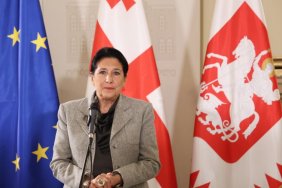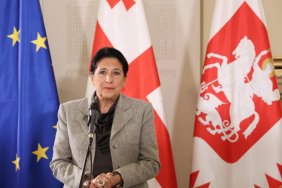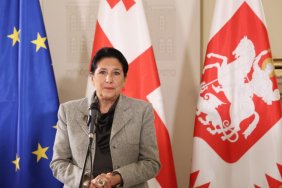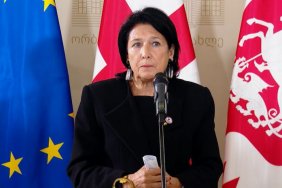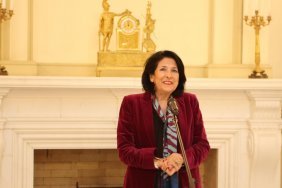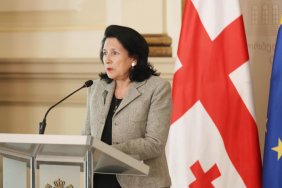Georgian president Salome Zourabaishvili on Friday said the wording of the Georgian Dream authorities and the Kremlin on “opening the second front” in Georgia on the backdrop of the ongoing Russia-Ukraine war, “coincide”, accusing the Government of “isolating” itself from the international community.
"No matter how you try to spread these conspiracy theories of the second front, the Georgian people know very well that the idea of creating the European Union serves peace, not war. The EU in Georgia directly serves the peace in our country, in the form of an EU observation mission and peaceful development”, she said in her annual speech in the legislative body.
“Therefore, no matter how hard you try to force these modeled scenarios, which were used by the previous government and suspiciously coincide with the messages of Russia and the separatists. It is a fact that Tbilisi and Moscow speak the same language on the subject of this second front. No matter how much you try to prove that the European and our national interests are in conflict with each other, you cannot escape the reality, because the protection of the territory, de-occupation, strengthening of the defense forces, the security of the population, the development of the economy and education, all this is unthinkable and impossible without close connection and cooperation with our partners”, she added.
Zourabichvili stressed it was “ impossible” to protect the national interest of Georgia by being in isolation, adding “there is no alternative to the European perspective”.
She added the authorities would “fail” in attempts to assure the people of the disadvantages of the EU.
"The Georgian people have known for more than a century what Europe is, why they want Europe, and that European values are in full harmony with Georgian values,"
The president also slammed the opposition for their actions, including their boycott of parliamentary work, that could have a negative impact on the country’s European integration process.

